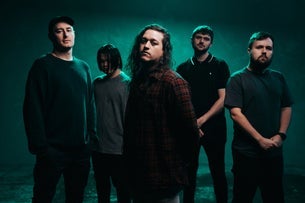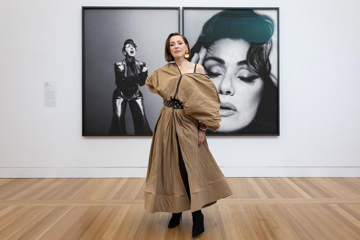'It's Not Like I'm Skating Anymore': Lagwagon's Skate-punk Tag Might Be Dated Now
Many fans will view Lagwagon’s ninth album, 'Railer', as a return to form, but as frontman Joey Cape tells Daniel Cribb, he was “really worried” during its writing process.

Bands tend to get pigeonholed after they’ve been together for a certain amount of years, and as they approach their 30th anniversary, ninth record and next Aussie tour, Lagwagon are embracing the “California skate-punk” label.
“There’s a road to acceptance, and it’s a long one,” frontman Joey Cape begins. “Early on, you’re more inclined to worry about the originality of what you do and what people think. You learn it just gets in the way and the best thing you can do is not worry at all about what people say or think or what labels you’re given, because that just muddles the natural process.”
As such, Cape doesn’t mind labels, and tongue-in-cheek single Bubble is proof of that. “People live in bubbles, people use bubbles to compartmentalise things in their lives, people have to have words to describe things when they can’t actually play the music for everybody, if they’re writing about something or talking about something, so naturally, these labels arise,” he says.
“We’ve had several throughout the years, but the one that seems to stick is ‘California skate-punk’. It’s funny because we’re all in our late 40s and 50s and, I’ll still take a longboard down to the market, but it’s not like I’m skating anymore; I’ve got a bad knee, a bad back – everybody in the band has lifelong injuries.
“But it’s just the one that stuck, and there’s a point when you realise that that’s okay because you can be not even considered. If people want to put you in a bubble – you’re from another time and an era and all that – I think you have to remember how fortunate you are that they’re even considering you. I’ve had success playing music, my great love, so I’m just about the luckiest guy there is, that’s the way I see it. So [Bubble] is kind of an anthem embracing that.”
Don't miss a beat with our FREE daily newsletter
The raw energy on Bubble carries through on the rest of Railer and is reminiscent of the band’s earlier work, something Cape achieved by writing the album in a couple of weeks and not allowing himself to overthink things.
“I just kept thinking, ‘What is the soul of this band? Where are we now? What do we do?’ I also kept a little bit of a throwback mentality to where we’re from and what we do…you just try to get as close to your truth as possible, and it worked,” he reveals.
“I was scared, I thought, ‘Oh my God, this is happening so fast.’ And then we set a recording date and I was really worried that it was not going to come out right or not feel like it had gotten enough attention, and sort of the opposite happened…sometimes when you let go and start at the core, it’s natural and it feels right.
"You just try to get as close to your truth as possible, and it worked.”
“It was so weird because the reaction I got from the band was more positive and more excited and more enthusiastic than the last record, Hang, which I spent like two years on; I really worked hard on the lyrics and everything and threw out a million songs. This time it was like, ‘I’m writing a song, put it aside, I’ll work on lyrics later. I’m writing another song.’
“Then we started working on the stuff and I thought, ‘I’ve been doing everything wrong, I’ve got to do this from now on,” he laughs. “It may be a fluke – I might try to do that again, and it doesn’t work, I don’t know yet, but I’m stoked right now.”
Related Gigs












